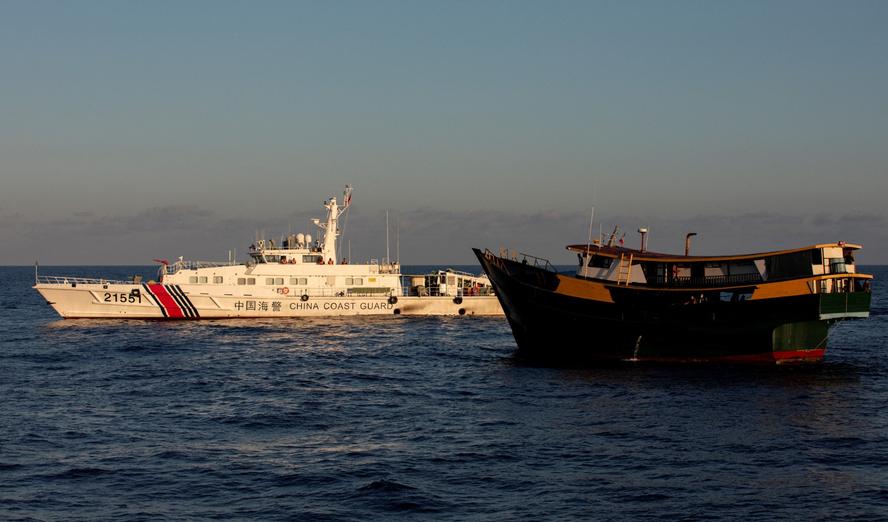Philippines readies for armed conflict amid growing Chinese aggression
China’s actions in relation to sharing the South China Sea with the Philippines so far have been aggressive but nonlethal, yet Manila does not want to risk remaining unalert and inadequately prepared. The Philippines now has decided to modernise its defence system to combat Chinese forces in case the ongoing clashes turn violent. It involved the purchase of fighter jets, supersonic missiles and submarines.
The Chinese aggression and hegemony in the South China Sea have compelled the Filipino government to be prepared for a big conflict. Several Filipino vessels were blocked and damaged by the Chinese naval forces in the areas that have been declared as maritime territory of the Philippines by The Hague Tribunal.
A few days ago, both China and the Philippines agreed to hold discussions to de-escalate the bilateral tensions. However, China continued to resort to the use of water cannons, collisions and ramming tactics against Filipino vessels. China was blamed for restricting vessels engaged in fishing, supply and patrol activities in Filipino territory.
While China sought to maintain dialogue and consultation to sort out differences, it remains belligerent on disallowing the Philippines and other ASEAN nations to use over 90 percent of the South China Sea. Beijing even sent a monster ship to the Second Thomas Shoal which Manila calls its exclusive economic zone (EEZ). It led the recent bilateral attempt to “restore trust“ and “rebuild confidence” to wither.
This led Philippine President Ferdinand Marcos Jr to express a lack of confidence in the vision for “peace, stability, and prosperity” in the South China Sea. “Unfortunately, this vision remains for now a distant reality. Illegal, coercive, aggressive and deceptive actions continue to violate our sovereignty, sovereign rights and jurisdiction,” he said.
Amid growing provocation and military aggression from the Chinese side, the Philippines has asked Beijing not to cross a red line. Taking a strong stand, Marcos Jr said it would be “an act of war” if even a single Filipino national was killed in Chinese aggression. “If by a wilful act a Filipino – not only serviceman, but even Filipino citizen – is killed… that is what I think very, very close to what we define as an act of war and therefore we will respond accordingly,” he said.
The warning came after a Filipino serviceman lost his thumb when Chinese forces attacked a boat recently. Manila has sent clear signals to Beijing that now it will not bow down to Chinese dominance but rather confront it. Moreover, the Philippines has demanded China pay USD one million for the damages that occurred to its equipment and personnel during Chinese aggression in the South China Sea.
The clashes can flare into an armed conflict due to Chinese actions, said
Collin Koh, a senior fellow at Singapore-based S Rajaratnam School of International Studies. “China could be risking a high-stakes gambit by pushing the envelope of coercion, raising the chances of a miscalculation when emotions run high,” he said. The self-restraint by the Filipinos has prevented escalation so far, Koh added.
In the wake of growing tensions, the Philippines has approved the purchase of new multirole fighter jets, such as the US F-16 and Sweden’s JAS-39, to improve its external defence capabilities. The decision to make expensive purchases on defence despite financial difficulties signals the Philippines’ intention to check China’s air and maritime operations in the South China Sea.
The Philippines has already procured supersonic cruise missiles named BrahMos from India.[9] These missiles are shore-based and have an anti-ship system with a range of 290 kilometres. The first BrahMos anti-ship missile base faces the South China Sea. These missiles will bolster the Philippines’ coastal defence system, allowing it to protect its sovereign rights against Chinese expansionist ambitions, said Manila-based geopolitical analyst Don McLain Gill. “This adds an important and practical layer of deterrence for the Philippines amidst its limited military resources vis-a-vis China,” he said.
Moreover, the Philippine government has approved the purchase of submarines. This can deter large Chinese ships from frequently venturing into Filipino waters. “We may not be a large navy … but we would have a navy that will take care of our territorial rights and sovereignty,” said Roy Trinidad, a spokesman for the Filipino navy. The Philippines will respond appropriately to the Chinese harassment, said Gen. Romeo Brawner Jr, chief of the country’s armed forces.













